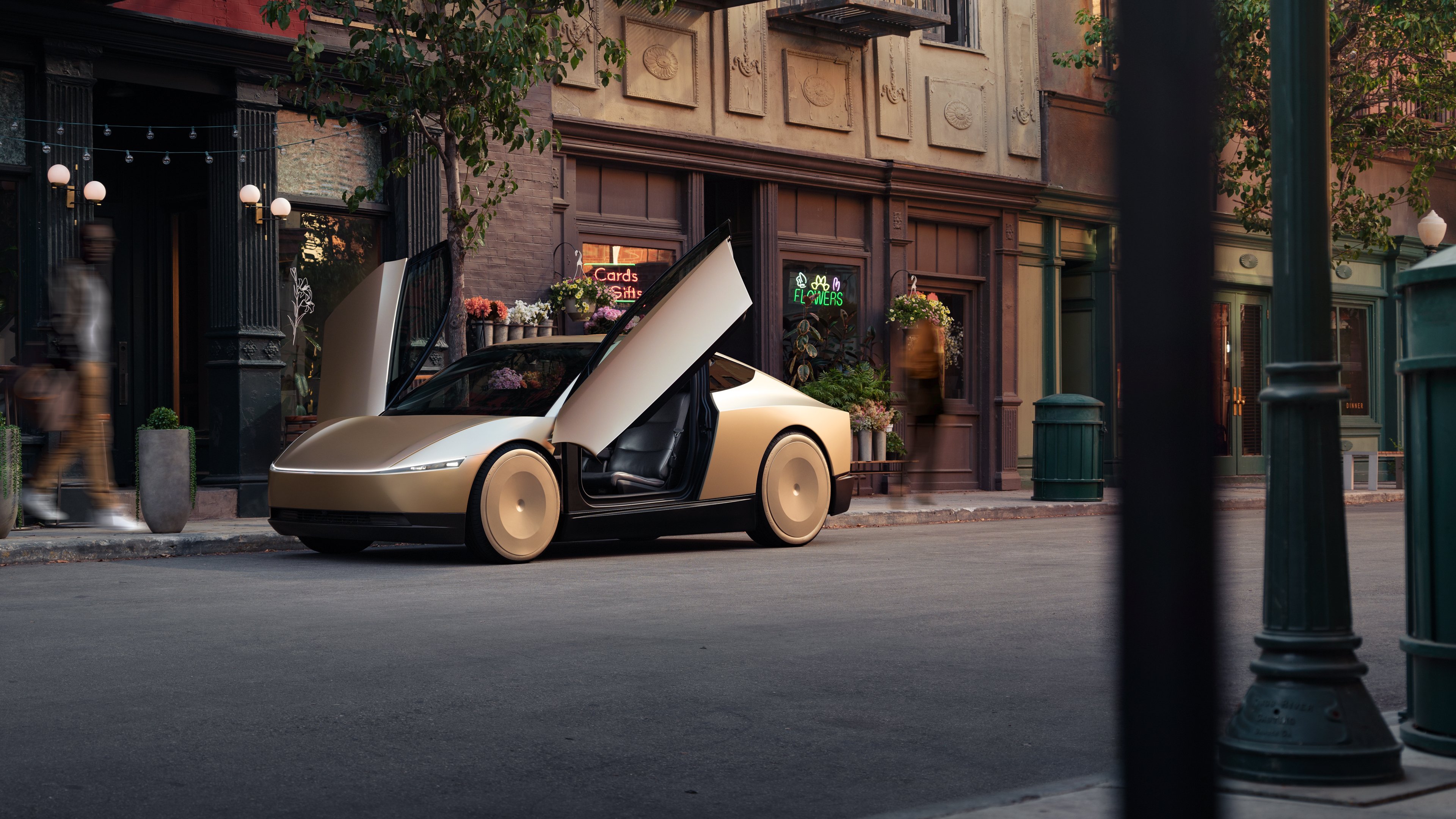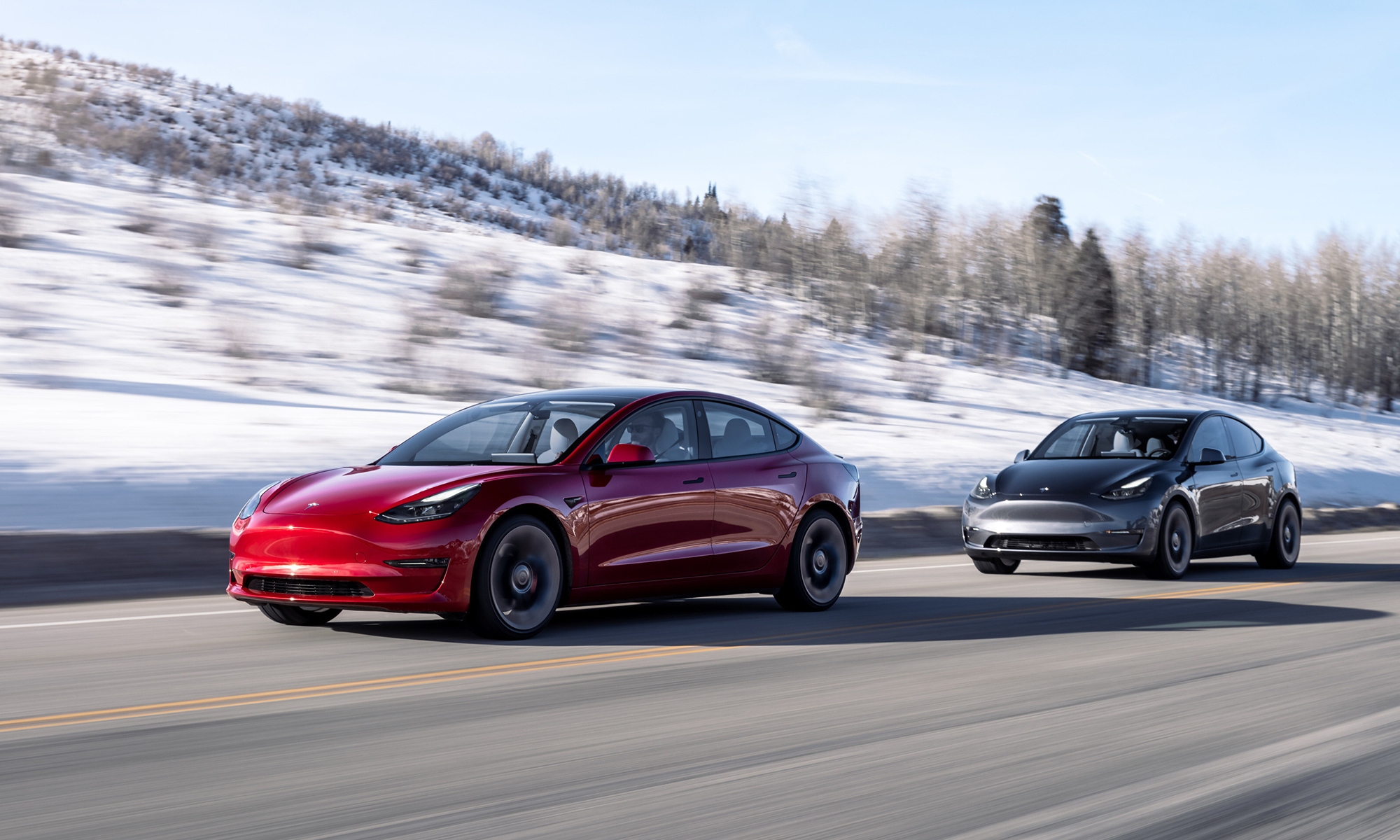
Image source: Tesla.
Some interesting revelations came to light this past week in the automotive space. Morgan Stanley analyst Katy Huberty and her team estimated that the burgeoning shared mobility market could be worth $2.6 trillion by 2030. You can read that number again if you need to. I'll wait.
Shared mobility refers to a broad market where users are shuttled around in autonomous vehicles that they don't necessarily own or tapping into ride-hailing or ride-sharing services for their transportation needs.
And here's where Tesla (TSLA +0.90%) comes in. The electric-car maker already has some of the most advanced semi-autonomous cars on the market and CEO Elon Musk has made it very clear that one of Tesla's goals is to release a fully autonomous car in the coming years. Tesla's been focused on selling its vehicles to individuals so far, but if the company ever decided to begin selling some of its vehicles to companies in the shared mobility space, it could potentially be very lucrative.
You may remember that Uber CEO Travis Kalanick said last year that if Tesla were to release a fully autonomous vehicle by 2020, his company would buy all of them. Tesla wasn't interested, and Uber recently signed a deal with another semi-autonomous car leader, Mercedes-Benz, for 100,000 vehicles by 2020. But other companies could come along after Uber and do the same with Tesla.
The shared mobility opportunity
Huberty believes Apple (AAPL 0.42%) has ramped up research and development spending over the past three years to focus on shared mobility. She also estimates that Apple's revenue potential could reach $400 billion by 2030.
Apple is already rumored to be releasing its own car before 2020, and just invested $1 billion in the China-based shared mobility company Didi Chuxing last month. If Apple pursues this automotive market, it could certainly be a game-changing move for the company, but the potential could be just as important for Tesla.
Tesla is certainly very capable of selling the cars, and drawing plenty of interest for its new ones. The upcoming Model 3 already has nearly 400,000 pre-orders. And the company aims to produce 500,000 vehicles per year by 2018 (two years ahead of its original schedule).
So far, Tesla has focused entirely on sales to individuals, but there's no reason why the company couldn't fulfill orders for Uber-like companies in need of driverless cars (unless it can't make enough cars to meet its own demand -- more on that later).
The fact is that with Apple inching closer to shared mobility services, Mercedes-Benz selling semi-autonomous cars to Uber, and Google working with Fiat Chrysler on a driverless minivan, it would be unwise for Tesla to rule out selling some of its future vehicles into shared mobility market.
Tesla's second-largest market, China, is already hurtling toward shared mobility. Didi Chuxing's private car-hailing app (similar to Uber) completes 11 million rides in the country every single day. China's response to the Model 3 has also been overwhelming. Robin Ren, Tesla's vice president and president of its Asia-Pacific region, recently said that many of the Model 3's pre-orders have come from Chinese customers. China is second only to the U.S in the number of Superchargers, which will hit 100 later this year. If Tesla started setting aside some its vehicle production for shared mobility, it seems it would definitely find a market to sell them in China.
Tesla's roadblocks
Of course, there are some roadblocks Tesla faces in entering this new market, the first of which is Tesla's ability to produce enough cars.
As I mentioned earlier, Tesla says it will make 500,000 cars per year by 2018. While production ramp-up is two years ahead of schedule, it may not be enough vehicles to meet demand for the Model 3 (which stand at 400,000 remember) Model S, Model X, and sales to companies for shared mobility purposes. The company has to prove itself when it comes to vehicle production, and it could be a year or two before we see how well it has met its goals.
The other thing to consider is that Tesla simply may not be interested in pursuing this nascent market just yet. It is doing just fine focusing on sales to consumers right now, and it may not want to get sidetracked with a new market.
But with Tesla's strong position in semi-autonomous vehicles right now and a growing shared mobility demand in China, it appears the company is in a perfect position to benefit -- if it ever decides to move in that direction.








